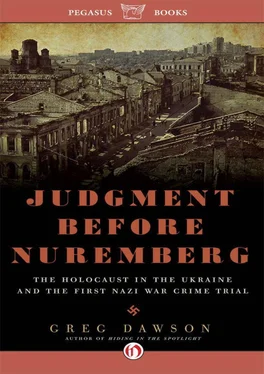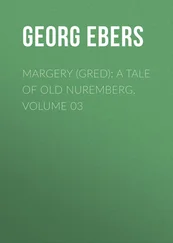We were surprised when, two weeks later, Aimee received from “Zee” a handwritten letter covering four pages of her 8-by-10 personalized stationery with the sketch of a grand piano in the upper right-hand corner. We were astonished when we read the letter.
Not only had my mother directly answered Aimee’s questions about her life and “major world events,” she had done so in wrenchingly personal terms—reaching emotional depths untouched in her interviews with me.
“Dearest Aimee. To start with you should know that I have loved my country truly passionately from very early childhood. Some easier times and mostly hard times did not take away this feeling of mine. My parents were the most devoted kind to my sister Frina and myself. There was no limit of their concern for us.”
She described her idyllic early life in Berdyansk and later Kharkov where she and Frina studied piano at the conservatory, and how it all vanished in a flash when the Nazis arrived in 1941—when she was about Aimee’s age.
“They hung anyone they wanted on the trees where people had to walk,” she wrote. “They tore into our apartment first to press and hold my mother to the wall, and the second time they took my father’s violin. It was with my father almost every day of his life. That horrified me and I can never tell anyone what hatred I had for them.”
She recounted the march of 16,000 Jews from Kharkov to a killing field outside the city, and how the Nazis mocked the walking dead and took souvenir photos to send home to Germany.
“I found out how little death mattered to me if you weren’t ridiculed, laughed at, or had your picture taken in your most humiliated moment of life. The realization came to me early in five years of war that humiliation is much worse than death. I never felt that I was a big enough person to endure humiliation and I don’t think that has changed. Our honor is life itself to us, and dignity.
“Well, at this point of my story, I will have to make it very sketchy because it’s too long, it’s much too hard on me and also because one day I hope to make it known to this world of ours.”
It was the first time I had heard those words from my mother—“I hope to make it known to this world of ours.” For fifteen years, since she first told me the story, she had resolutely resisted the idea. The letter from Aimee had changed everything. It’s as if she flipped a light switch and suddenly my mother could see the importance of telling her story for Aimee’s generation and others to follow. She grew more and more willing to share her story, agreeing two years later to an interview for Steven Spielberg’s Shoah Project. After the phenomenal success of Schindler’s List in 1993, Spielberg sent camera crews around the world to record the testimonies of as many survivors as he could find, knowing they would soon be gone.
My writing mentor, Bob Hammel, and Candy had never given up their campaign for a book, and now events were on their side. Aimee’s letter, the Shoah Project taping, and my mother’s stated desire to “make this known to the world” had given their effort real momentum. There was another event, wholly unexpected, which drove home for me the imperative of preserving the story.
After her sophomore year in high school, Aimee and a dozen classmates followed a venerable tradition—the chaperoned “If it’s Tuesday this must be Belgium” summer tour of Europe, five countries in ten days by bus and train. Strange languages, stranger food, midnight pillow fights, picturebook scenery—all of it reflected in Aimee’s scrapbook. Or so we thought. In fact, she had omitted one stop.
In Aimee’s scrapbook and her postcards and calls home, there was no trace of the group’s trip to Dachau. The blank page, the silence, was out of character for Aimee, a garrulous, opinionated student-government leader. We learned of the Dachau tour from one of the chaperones, a teacher who knew Aimee well. Of all the students, she said, only Aimee was visibly shaken by what she saw at Dachau, and said nothing afterward. This was two years after she received my mother’s letter, which did not include this detail: after the war, before leaving their displaced persons camp in Germany for America, my mother and sister played a long concert for two thousand survivors of Dachau.
While it’s possible to engage in too much armchair psychology, it is difficult to account for Aimee’s reaction to Dachau except as trauma—her subconscious connecting what she saw at Dachau to her grandmother’s ordeal. Aimee’s distress was deeper than anything I had ever felt. It almost seems as if the trauma of my mother’s experience, which she spared me, had been transmitted to Aimee, who unmistakably inherited my mother’s slender frame and fiery Russian temperament. Did she also inherit the winds of my mother’s war?
Berger identifies common characteristics among Second Gens such as sensitivity to multicultural issues and concern for social justice. “Many of the second generation witnesses seek a post-Auschwitz mending of the world. For instance, numerous children of survivors enter the helping professions, for example, marriage and family therapists, mental health counselors, social workers, attorneys, and teachers. Furthermore, many of the Jewish second generation speak with a moral voice, on issues ranging from social justice to peace in the Middle East to counseling children of Vietnamese boat people.” [1] Alan Berger, Second Generation Voices: Reflections by Children of Holocaust Survivors & Perpetrators (Syracuse University Press, 2001), 3.
This portrait of a Second Gen sounds less like me than it does Aimee, who is technically the Third Gen. Perhaps it had nothing to do with her grandmother being a Holocaust survivor who despises prejudice, but as student body president in high school Aimee appointed rainbow cabinets and volunteered with the National Conference for Community and Justice which combats discrimination and hate. Her first job after college was youth program director for the NCCJ in Washington, D.C. Now she volunteers at urban high schools in Indianapolis, teaching reading and presentation skills. And the bond with her grandmother, “Zee,” grew, and continues to grow, stronger each year.
As the new millennium neared, I was chafing under the punishing iron yoke of the top editor at The Orlando Sentinel, where I had been a columnist since 1986, and began looking around. In early 2000, I was offered a job as consumer columnist at The Indianapolis Star , just an hour from Bloomington where Aimee was attending Indiana University. I loved the idea of moving back to basketball country and working for an editor, Tim Franklin, who believed in using the First Amendment. The job itself would be less time-consuming than my TV-critic and columnist gigs in Orlando, which I always brought home with me.
But despite the bonus of Aimee becoming eligible for in-state tuition and seeing her more often (not necessarily in that order), it was not a slam-dunk decision for us. We had moved several times and hated it. We had sworn Orlando would be our last stop. Moreover, I was taking a $13,000 pay cut to escape Captain Queeg in the editor’s office—though Candy would make that much more in Indianapolis for the same reading-specialist job she had in Orange County.
“Okay,” Candy said one day, “let’s do it—on one condition.”
“That I do all the packing?”
“That you use the extra time to write the book.”
“Deal,” I said.
In the autumn of 2000, I left behind the gold and crimson foliage of central Indiana and traveled to Atlanta for an interview with my mother that I hoped would lead to a book about her Holocaust experience. I had written to her sister, Frina, about the project and asked when I could visit her in Buffalo, NY, to get the story through her eyes. I was still waiting to hear back.
Читать дальше












